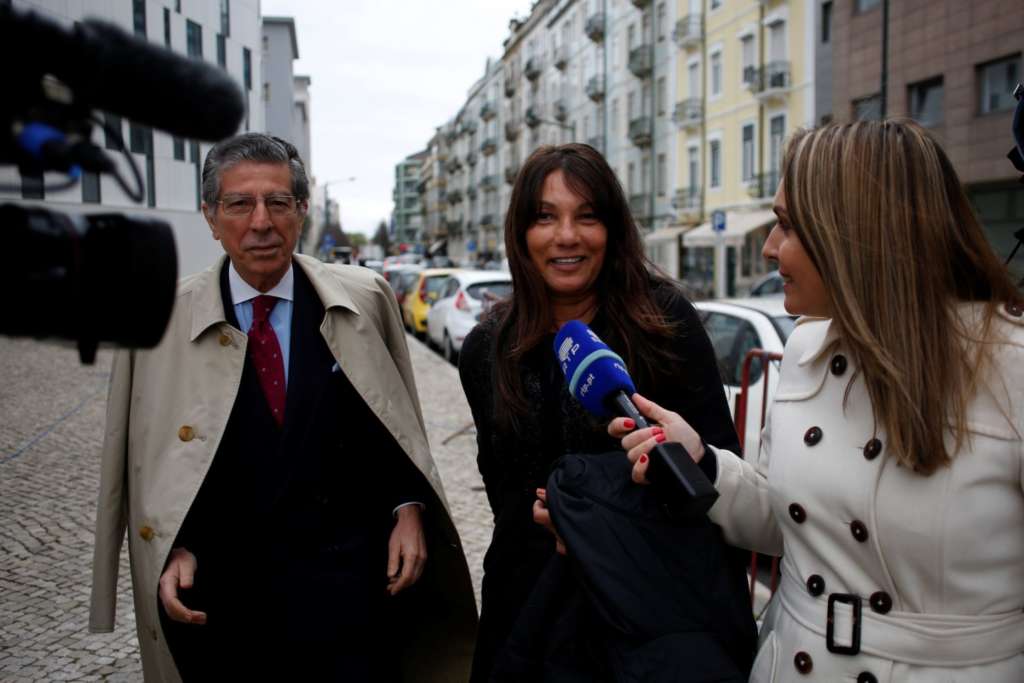For years, Sabrina De Sousa tried persuading Italian authorities she was wrongly convicted in absentia for the 2003 kidnapping of an Egyptian terrorism suspect in Milan. From her home in Washington and now in Portugal, the former American spy lobbied for a pardon so she could visit her aging mother in India without being extradited to Italy and jailed.
On Tuesday, shortly before Interpol authorities were due to escort her to Italy for a four-year prison sentence, De Sousa finally got what she was seeking: Italian President Sergio Mattarella issued a decree paving the way for her to perform community service, rather than serve jail time. The Italians also revoked her arrest warrant, freeing her to travel anywhere she’d like.
De Sousa, 61, a dual US and Portuguese citizen who lives in Lisbon, said she is elated by the last-minute decision, although she feels it came three months too late: Her mother, Julia De Sousa, died in early December at the age of 90. De Sousa couldn’t be with her.
“The sad thing is, I really wanted this to be resolved a while ago so I could turn to her and say ‘It’s done,’” De Sousa said in a Skype interview on Wednesday. “People don’t seem to realize how a conviction impacts you and your normal daily life. I couldn’t see my family.”
She credited the Trump administration with taking her case seriously. She highlighted the role of former Michigan Rep. Pete Hoekstra, a Republican, who lobbied the CIA and other agencies to negotiate a deal with the Italians that would prevent her imprisonment.
“The new leadership at the CIA was 100 percent behind Sabrina,” said Hoekstra, a former House Intelligence Committee chairman. “The prospect of a CIA case officer sitting in an Italian jail would not have been a good visual. This has been a festering wound between the US and Italy for 13 years and now it’s finally healing.”
The CIA declined to comment on the case. In a statement, Mark Toner, the State Department’s acting spokesman said it welcomed the Italian President’s decision.
De Sousa’s ordeal began on Feb. 17, 2003, when an Egyptian imam named Hassan Mustafa Osama Nasr, also known as Abu Omar, left his apartment in Milan for his daily walk to his mosque. CIA officials believed the cleric had plotted one year earlier to blow up a school bus of children en route to an American school in Milan. A white van rolled up alongside Abu Omar, and two men shoved him inside. The imam was ultimately flown to Egypt, where he was tortured before being released.
At the time, De Sousa was registered as a State Department officer at the US consulate in Milan. In reality, she worked as a CIA case officer. On the day of Abu Omar’s abduction, De Sousa has said she was chaperoning her son’s ski trip in northern Italy.
Italian prosecutors pursued the case on the grounds that Abu Omar was forcibly seized without a warrant, in the controversial practice known as an “extraordinary rendition.” In February 2007, an Italian judge indicted De Sousa and 25 other Americans, nearly all of them CIA officers, who had already left Italy. Prosecutors in Italy built their case partly off the Americans’ slipshod tradecraft, relying on the Americans’ cell phone records to trace their movements before and after the operation.
In their investigative documents, prosecutors quoted an Italian law enforcement officer who “suspected” De Sousa was the “real CIA boss in Milan,” and another Italian intelligence official said the rendition was “close to the hearts” of De Sousa and the CIA chief in Rome.
De Sousa has said the evidence was completely circumstantial. Her only involvement, she said, was that she served as an interpreter in 2002 between the CIA and their Italian counterparts to discuss renditions, in general.
In 2009, De Sousa and 22 other Americans were convicted in absentia by the Italian judiciary and sentenced to prison. Everyone stayed clear of Europe, except De Sousa who in 2015 flew to Portugal, where she could live near family. Her case, she has argued, shows the vulnerability of American diplomats abroad to prosecution by their host countries.
In late February, Portuguese authorities arrested her and sent her to a women’s prison, preparing her for extradition to Italy. But on Tuesday, Mattarella reduced her sentence from four years to three, enabling her under Italian law to perform community service instead.
Although De Sousa can do the volunteer work in Italy or Portugal, she is opting for Italy.
“I don’t see any reason to put any onus on Portugal, in terms of resources, since everything that happened was in Italy,” De Sousa said.
She said it’s up to Italian authorities to decide which town or city she’d perform the community service and what she would do. She said she can make proposals for volunteer work, and it could take a year for the courts to finalize plans.
(The Washington Post)
